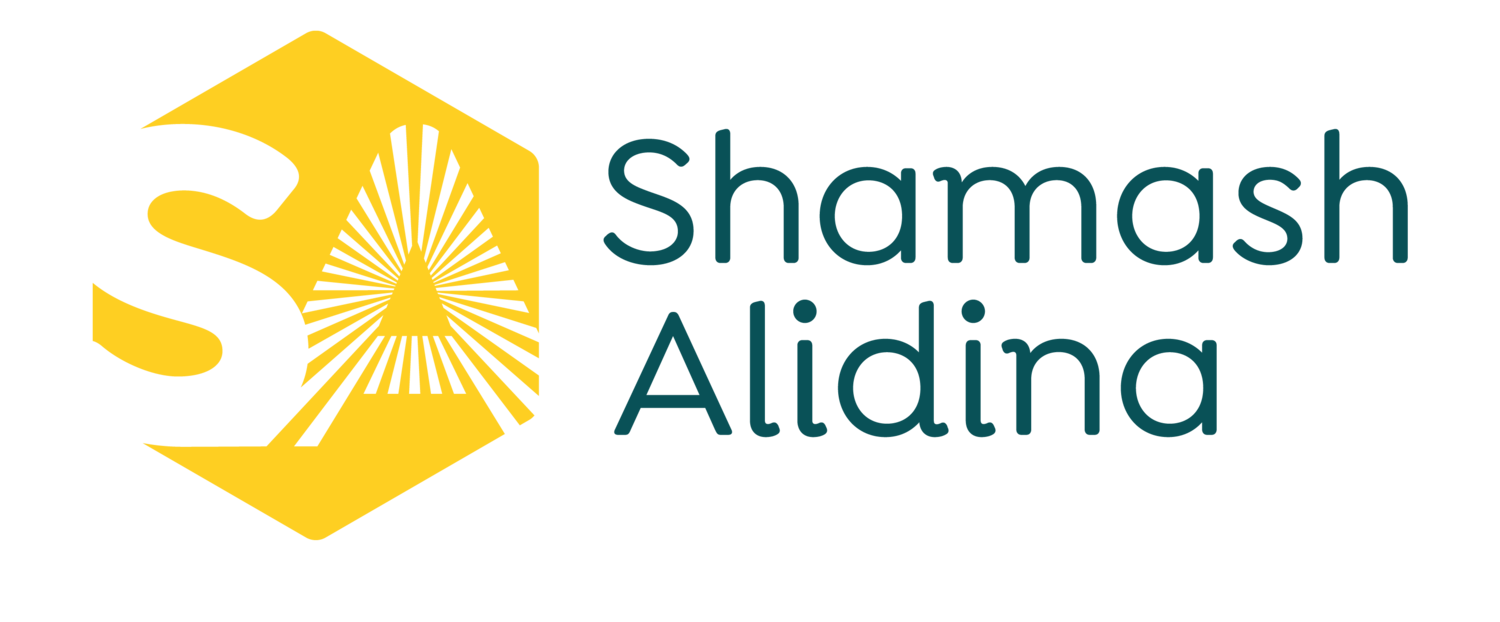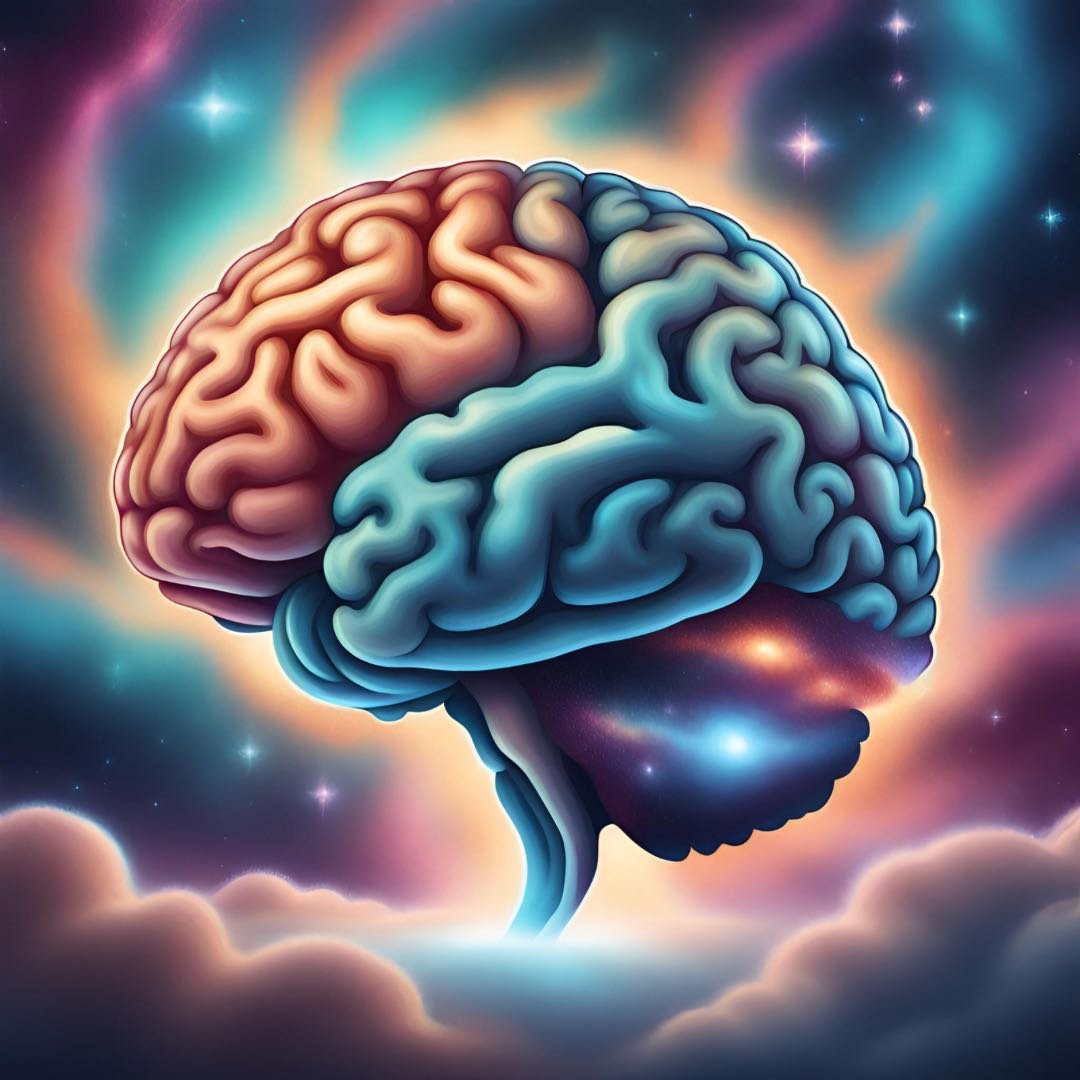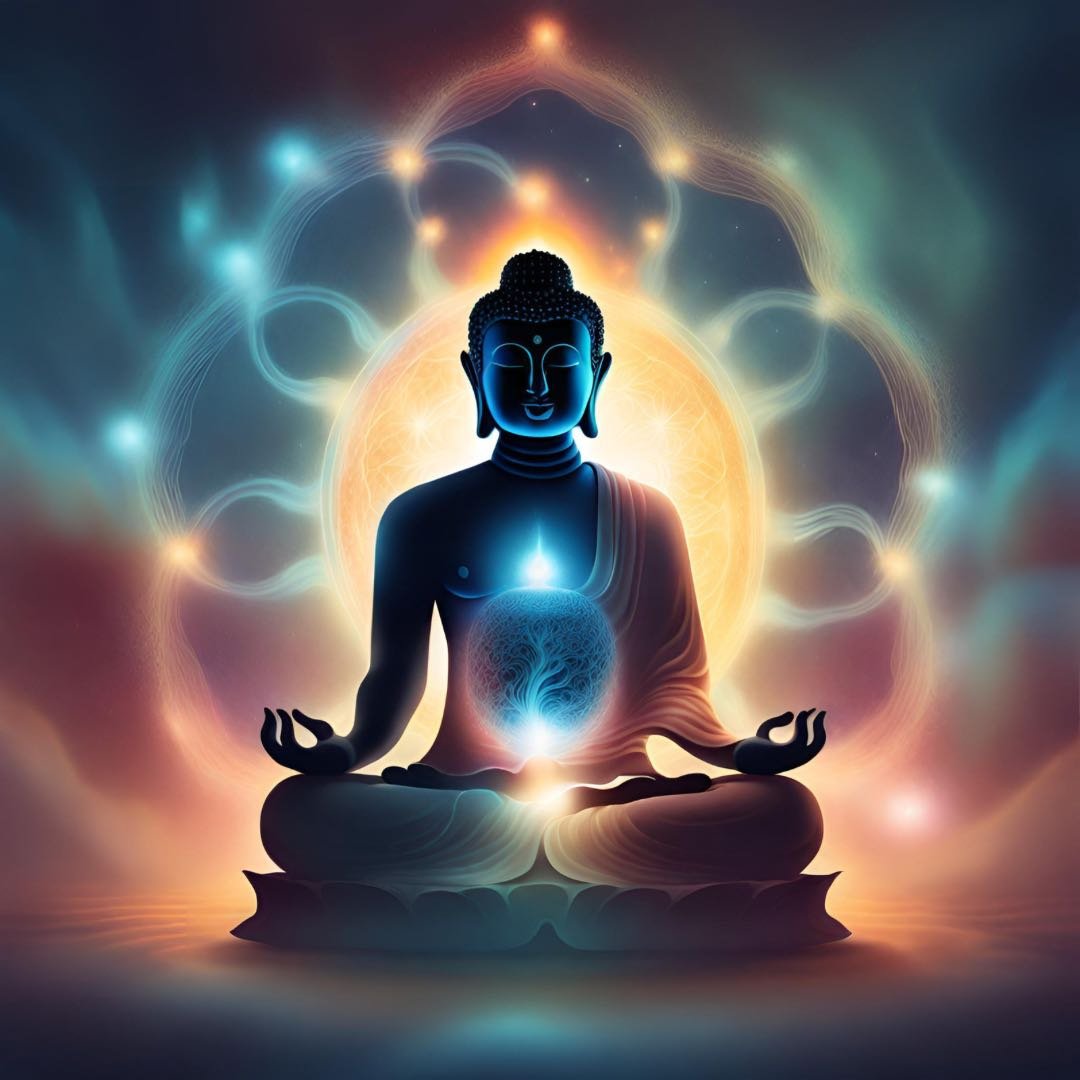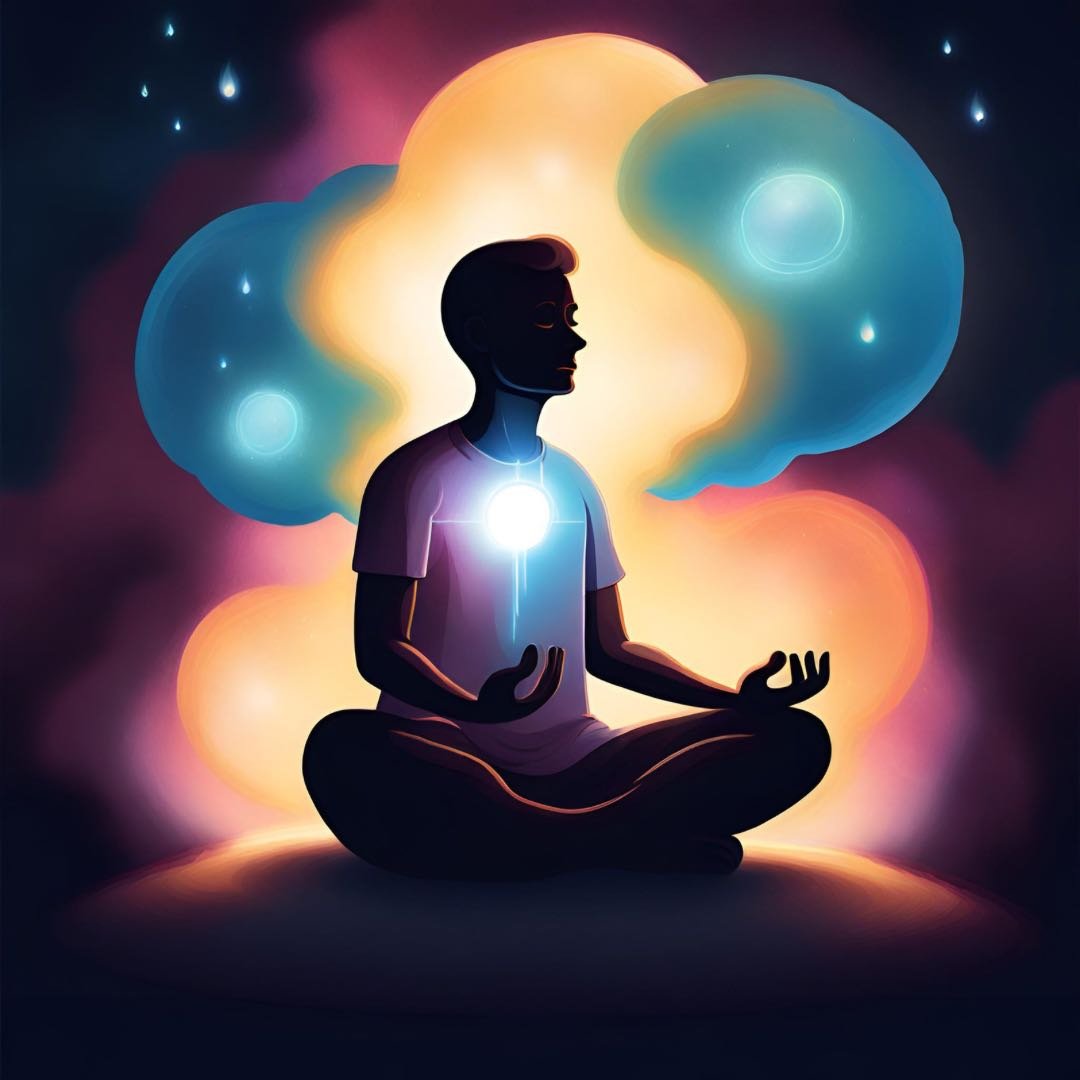Could Free Will be an Illusion? Find Out What Buddhism, Neuroscience, Mindfulness and Non-dual Philosophy Say About This
/Introduction
Free will—the philosophical concept that has captivated thinkers from ancient Greece to the buzzing labs of neuroscience.
The question is: are we the authors of our destiny or is life living us, so to speak?
In this blog post, we'll explore this riddle from multiple angles, drawing insights from Buddhist teachings, modern mindfulness, the insights of neuroscience, and the transcendental non-duality philosophy.
So whether you think you've decided to read this blog or the Universe has conspired for you to be here, fasten your seat belts—or acknowledge they've been fastened for you—and let's take a whirlwind tour into the realm of free will, or perhaps its intriguing illusion.
Was Buddha Right? Is there no unchanging self?
Let's kick off with by exploring what Buddha had to say about this whole 'self' business.
Buddha's Anatta and the Philosophy of ‘Non-Self’
Buddha introduced the notion of 'Anatta,' or 'non-self,' explaining that this illusion of a permanent self is the root of all suffering.
The philosophy doesn’t actually deny self. It says there is no unchanging, permanent self or essence.
It's like believing your body is exactly the same all your life, when in reality it’s changing everyday. Most of our cells are replaced many times over our lives. In fact, our skin is replaced every few months. And yet it feels like it’s been the same skin our whole life.
Non-Duality and the Eastern Gurus
Let's bring in some key figures from the world of non-duality: Sri Ramana Maharshi and Sri Nisargadatta Maharaj. These highly respected non-duality teachers extended the 'no-self' playlist and some more.
Non-duality is considered the highest essence of Hindu philosophy, called Advaita, in Sanskrit, which literally means ‘not two’.
Ramana would often ask those that asked for advice, to explore the question "Who am I?" not because he forgot his name, but to guide people in dissolving this illusion of the self. It was designed to be a pointer to one’s true essence rather than a practice to be repeated mechanically.
Nisargadatta turned the dial up with statements like,
"When I look inside and see that I am nothing, that is wisdom. When I look outside and see that I am everything, that is love."
Deep, isn't it? Like a philosophical rabbit hole, the more you explore, the more expansive it becomes.
The Intersection of No-Self and Free Will
Let’s be clear what we mean by free will firs. You can think of free will as the ability to make choices freely and independently of other influences. It’s the flexibility to be able to make a different choice if you were in the same situation once again.
So, what's all this talk about 'no-self' got to do with free will? Well, if there is no unchanging, permanent captain steering this ship called 'self,' then who's making all these choices? Suddenly, free will starts to look more like a nice idea than a concrete reality, much like thinking you can diet while working in a chocolate factory. I certainly couldn’t!
Let's tie these threads together. If Buddha and his non-dual friends are onto something, then the concept of free will is dancing on a very shaky stage. Are we free to make choices, or are choices making us? A question worth pondering—or is it pondering you?
The Neuroscience of Decision-Making – Is Your Brain Choosing for You?
If you're under the impression that you're making all your decisions, think again—or perhaps your neurons have already thought for you. Neuroscience, the glamourous cousin of psychology, has some fascinating findings that might just tilt the balance in this free will debate.
The Brain: A Marvel of Cause and Effect
Science is built on the bedrock of cause and effect. For every action, there is a cause behind it, and it appears our brains didn't get the memo about being exceptions to this rule.
If you take a moment to think carefully, the concept of free will doesn’t make any sense. How can our choices be totally independent of anything else? Our choices are made up from a soup of past causes. Each thought we have is influenced by the thoughts before it and the hormones they swim in.
Whether it's dopamine driving you to devour that chocolate cake or oxytocin giving you the good feels while meditating, neurochemistry can take the credit for a lot of what you 'choose' to do.
Pre-Decisional Activity: A Sneak Peek into the Unconscious
Ever heard of the Libet Experiment? Well, neuroscientist Benjamin Libet found that brain activity signalling a decision occurs milliseconds (or sometimes several seconds) before people report being conscious of making that decision.
Mind-blowing, right?
It's like your brain is reading the script before you even audition for the role. And here you were, thinking you were the director of your life's play. Perhaps not.
But we can take things much deeper. For example, you had the feeling you chose to read this blog. But did you choose the weather today? Did you choose to have a good nights sleep? Did you choose to not have a huge headache? Did you choose to have the drive and motivation to read today? Did you choose for your eyes to work?
There’s an almost infinite number of different causes that have had to come together for you to be reading in this moment. The feeling of having chosen is just that - a feeling.
Cause and Effect: A Cosmic Tangle
This intricate dance of cause and effect has deeper implications. If every choice has a preceding cause, then how can any choice be truly free? It's like dominoes falling in an intricate pattern; remove one and the entire structure collapses.
Where Science and Philosophy Hold Hands
So, between the Buddha saying there's no self and neuroscience indicating that our choices might just be elaborate, physiological puppet shows, it's getting rather tricky to pin down this slippery concept of free will.
Is there a puppeteer? And if so, who or what is it? A combination of neurons firing away and a Universe unfolding as it should?
Mindfulness and the Myth of Free Will
So, you've been sitting on your cushion, eyes closed, letting thoughts come and go like clouds across the sky. You notice something peculiar: thoughts seem to emerge into consciousness as if from nowhere. One moment, you're focused on your breath, and the next, you're planning dinner or reliving a conversation from 2003. Who invited these thoughts? Certainly not 'you,' or did you?
If you had total free will, you wouldn’t have any thoughts arising in your mind. In fact, if free will existed, surely everyone would choose to have only happy thoughts and there would be no depression or anxiety or even any need for meditation?
Observing the Emergence of Thought
The beauty of mindfulness is that it grants us front-row seats to the theatre of our minds. You've probably noticed that thoughts seem to pop up uninvited. Try as you might, summoning a state of no-thought is like trying to hold water in your hands; it's elusive and slips right through your fingers.
In fact, most people find it’s better to give up the idea of trying to quieten the mind, and discover this lack of trying to control is much more soothing.
Ego Gives the Illusion of Control
Here comes the ego, that cheeky imposter, sweeping in like a Shakespearean actor declaring, "I decided that!" But did you really?
Mindfulness shows us that decisions, much like thoughts, simply emerge. They appear in consciousness and our egos rush to take credit like a kid claiming to have baked the cake that mum made.
Every night you go to sleep and are unconscious of your body. And yet, your heart beats, your lungs breathe and your brain dreams. All happens by itself. When we wake up, thoughts arise, actions happen and the ego comes in and says ‘I did that!’ pretty much all day long.
The Unconscious Mind: The Real Puppet Master?
Neuroscience and mindfulness seem to be singing in harmony here. Decisions seem to be churned out from some unconscious factory and presented to our conscious minds like a fait accompli. We're left to rationalise and claim ownership, but who's really pulling the strings?
Letting Go of The Illusion
With regular mindfulness practice, you begin to see this illusion for what it is. Or you may never have meditating before but simply had this insight from watching your everyday life.
Choices happen, actions unfold, and life goes on, not because 'you' will it, but because that's the nature of existence. It's a liberating realisation, akin to taking off a pair of tight shoes you never knew you were wearing.
Conclusion: Unpacking the Illusion and Learning the Joy of Living without Free Will
If you've made it this far—or should we say, if your neurons, experiences, and perhaps a sprinkle of cosmic dust have guided you here—you might be feeling a range of emotions.
The realisation that free will could well be an elaborate illusion is akin to discovering the Earth isn't flat; it's a paradigm-shifter. And like all shifts in perception, it takes time to fully integrate this newfound knowledge into your worldview.
The great news is, no free will leads to a huge reduction in psychological suffering. Shame and guilt slip away as you’re not to blame. Stress and anxiety diminish as you’re not needing to control life anymore. Emotions come and go as they will. Decisions are easier as you can’t ultimately make any mistakes. Life lives you rather than you living life.
The Shock of Realisation
This can be a shocking revelation. You've been raised in a society that values individual choice, rewards willpower, and elevates the 'self-made' individual.
To suddenly find out that the director of this life's play might not be 'you' can rattle your sense of identity. It's like you've been told the job you thought you had doesn't actually exist.
The Gift of Time and Integration
Take your time to digest this. Let the wisdom of Buddha, the insights of neuroscience, and the observations from your mindfulness practice marinate in your consciousness. Much like how the understanding of non-duality seeps into you over time, this understanding too will take its own time to root itself in your psyche.
The Freedom of No Choice
Interestingly, there's a paradoxical freedom in acknowledging the absence of free will. It's the freedom from the tyranny of 'shoulds,' the freedom from the weight of regret, and the freedom to simply be. With each breath and emerging thought, you're offered a reminder that life unfolds beautifully on its own terms, not yours.
The Interplay of Different Perspectives
What's captivating is how Buddhism, neuroscience, and mindfulness converge on this topic. Like musicians in an orchestra, each offers a different note but contributes to the same melody. Buddha told us there's no permanent self, neuroscience showed us our decisions are pre-determined, and mindfulness exposed the illusion of control—all coming together in a harmonious, if somewhat disconcerting at first, symphony.
Mindfully Embracing the Illusion
If this idea that free will might be an illusion still feels overwhelming, consider this an invitation to lean into your mindfulness practice. Observe your reactions, your thoughts, and even your resistance to this idea.
You'll find that even the act of observation itself seems to emerge spontaneously. And that's okay; it's all part of this intricate, beautiful pattern called life.
Final Thoughts
So there we have it, a deep dive into the fascinating labyrinth of free will, or perhaps its absence. If the ground beneath you feels a bit shaky, remember, it's all part of the journey. The very fabric of what you considered to be 'you' might just be an intricate tapestry of causes and effects, neurons, and narratives. And that's not just okay; it's liberating.
Stay tuned for more practical tips and approaches for living without the illusory notion of free will.
---
If you're keen to dig deeper into the mysteries of the mind and the nature of reality, why not join me in a month-long adventure? Sign up for my free 30-day Mindfulness Challenge. Over the course of a month, you'll not only learn to observe your thoughts and feelings but also get to examine how they subtly—or not so subtly—influence your daily life. Who knows? It could be the perfect playground to explore your thoughts on free will and the elusive 'self.'
Begin your journey today at ShamashAlidina.com/Mindfulness-Challenge
Any comments or questions are welcome. I aim to answer them all asap. :)





